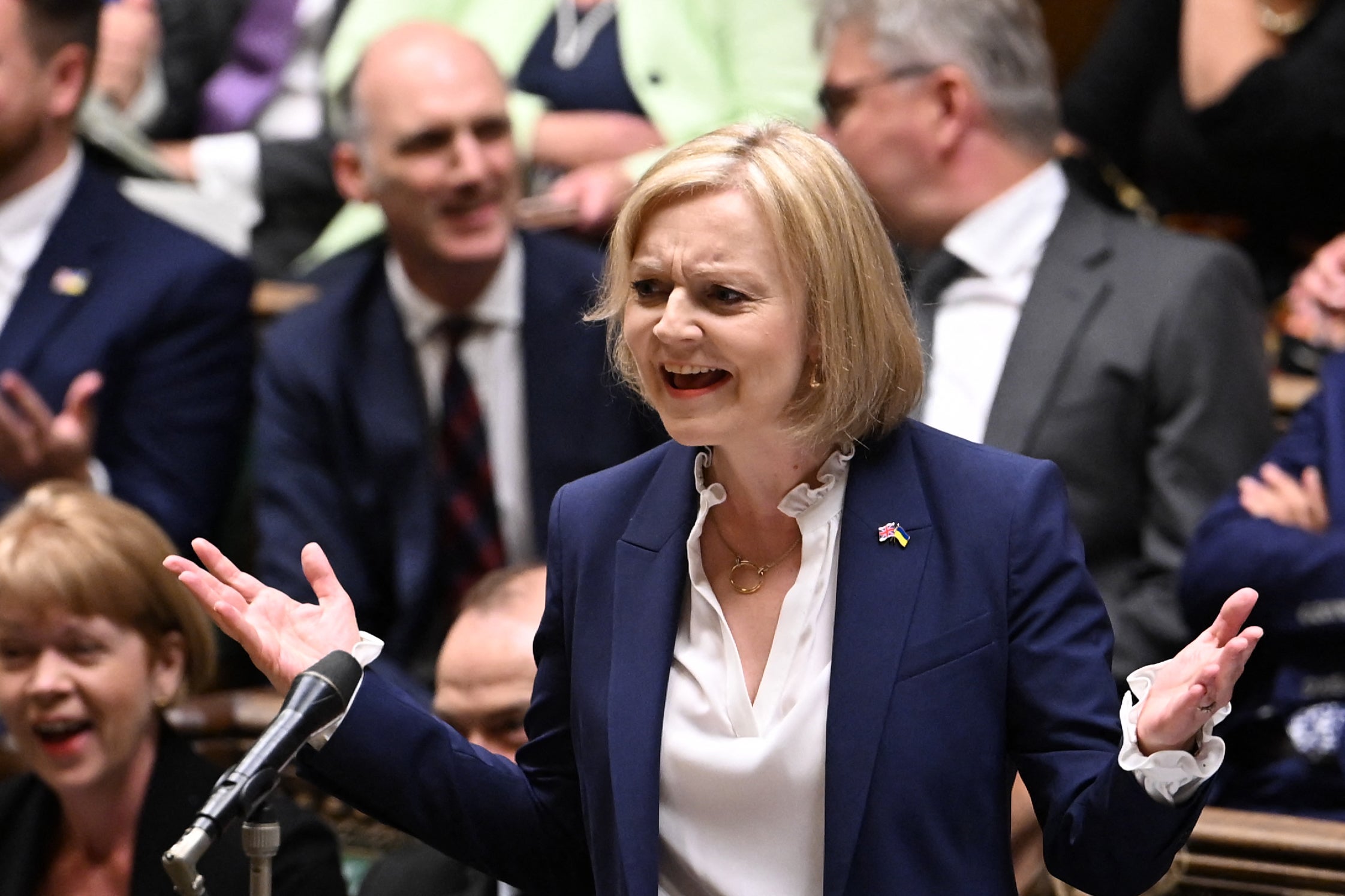Liz Truss’s empty statement did nothing to defeat Labour’s case for higher windfall taxes
The prime minister said she was ‘not giving in’ to Keir Starmer, but she is still losing the argument, writes John Rentoul


Until the whispers about the Queen spread, prompting frontbenchers to scurry in and out of the Commons chamber and the press gallery to empty, one of the biggest announcements in British history was surprisingly dull.
Sir Lindsay Hoyle, the speaker, opened proceedings by complaining that the written ministerial statement had only just been published, which didn’t give most MPs time to read it. Not that it would take them very long, as it was just 220 words, repeating what had already been briefed to the media and adding that “cost projections … are uncertain”.
Liz Truss then said the same things that had already been briefed to the media, and announced some “reviews”. In reply, Keir Starmer repeated what he had said at Prime Minister’s Questions yesterday, only at greater length and to less effect.
Although there was some debate about the prime minister’s plan, and how it should be funded, which were the important issues, much of the argument between the two sides of the Commons degenerated into a pointless “yah” and “boo”. The Conservatives accused Labour of having done nothing to secure Britain’s energy self-sufficiency during their 13 years in power; Labour accused the Conservatives of doing nothing during their more recent 12 years.
Both sides were right and wrong. Labour laid the foundation for the big increase in wind power that was largely delivered by the Tories and Liberal Democrats in the coalition; neither managed to build any new nuclear power stations – mainly because they were too expensive until the world price of natural gas suddenly went up.
Today’s business ought to have been about the immediate consequences of that price rise. But because Truss had so little new to announce, the argument was simply a repeat of her exchanges with Starmer yesterday. She said: “We will not be giving in to the leader of the opposition who calls for this to be funded through a windfall tax.” She said that would discourage investment.
Starmer replied by quoting the chief executive of BP, who was asked which investments the company would cancel if there was a windfall tax, and said: “None.” The Labour leader is right. He won the argument yesterday and he won it again today. Once gas prices go beyond a certain point, which they passed a while ago, the economic case against windfall taxes is feeble. I think Truss and Kwarteng are heading for trouble by resisting it, but I have misjudged her political instincts before and it may be that the absolutism of “no new taxes” will prevail.
There was no evidence for it in yesterday’s focus group convened by Matt Chorley for Times Radio: the voters in the group liked what they saw of Truss, of whom they had been almost completely unaware, having tuned out of the entire Tory leadership campaign, but they agreed strongly with Starmer about taxing oil and gas company windfall profits.
There is, in practice, less difference between government and opposition than the ideological divide suggests. Oil and gas profits are already taxed at a higher rate than normal corporation tax – 40 per cent as against 19 per cent – and a windfall tax has already been imposed since May, raising the 40 per cent to 65 per cent, which was decided by Boris Johnson and Rishi Sunak and voted for by the Commons months ago. Labour proposes “extending” the windfall tax, but has so far proposed only to increase its yield from £5bn a year to £8bn.
To keep up to speed with all the latest opinions and comment, sign up to our free weekly Voices Dispatches newsletter by clicking here
But politically, the gap between the parties is a chasm. As Starmer said, yesterday and today: every extra pound raised by an additional windfall tax is a pound that the government would raise by borrowing. That is a simple truth that Truss tried to avoid in her statement today, as she avoided the word “borrowing”, and only mentioned “debt” to claim that the cost of servicing it would be lower because inflation would be lower. She tried to pretend that she would “defray the cost of this intervention in three ways”, none of which was borrowing.
The first of them was “by ramping up supply”. Starmer rather laboriously quoted Kwarteng from a few months ago saying, correctly, that “additional North Sea production won’t materially affect the wholesale price”.
But the real difference between the parties, now that Truss has stolen Starmer’s policy of freezing energy prices for households, with “equivalent” support for businesses, charities and public sector organisations, is that she would borrow all of it, whereas Labour would pay for some of it from higher windfall taxes. Labour is on the right side of public opinion on this one, and Truss insists she won’t “give in” again.






Join our commenting forum
Join thought-provoking conversations, follow other Independent readers and see their replies
Comments